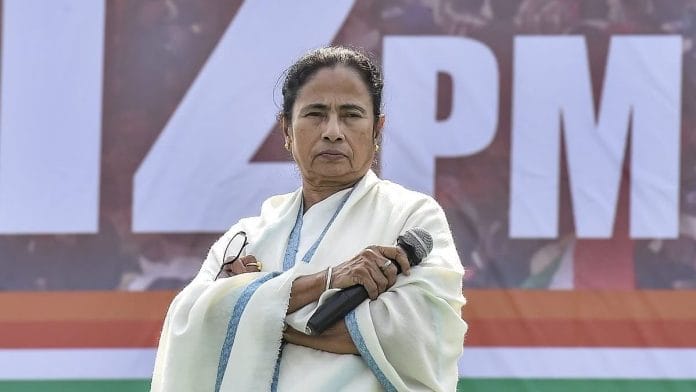Kolkata: The Trinamool Congress-led government in West Bengal has constituted a seven-member committee to review the three new criminal laws, according to a notification issued by the state’s Home and Hill Affairs Department Tuesday.
This makes West Bengal the second State after Tamil Nadu to look into the criminal laws — Bharatiya Nyaya Sanhita (BNS), Bharatiya Nagarik Suraksha Sanhita (BNSS) and Bharatiya Sakshya Adhiniyam (BSA) — which came into effect earlier this month.
The notification said that the state government had written to the Centre to defer the implementation of the laws, but the issues raised were not considered, which is why the state has decided to constitute a committee for reviewing the laws.
The panel will be headed by retired Calcutta High Court judge and West Bengal Lokayukta, Ashim Kumar Roy. Other members include TMC ministers Moloy Ghatak and Chandrima Bhattacharya, senior standing counsel for West Bengal in Supreme Court, Sanjay Basu, along with the West Bengal Advocate General and Kolkata Police Commissioner. The Director General of Police will act as the convenor of the committee.
Meanwhile, the Governor of West Bengal, C.V. Ananda Bose, has sought an immediate report from Chief Minister Mamata Banerjee about the objectives of the committee.
“The Governor wants a specific report on whether the West Bengal Government has responded to the proposal on time when asked for by the Govt of India…West Bengal cannot be a state within a state or turned into a banana republic,” read a statement issued by Raj Bhavan late Wednesday night.
According to the state government’s notification, the committee will have the power to engage with academic experts, senior advocates, research assistants and other legal experts to seek their views, and even carry out a public consultation to seek opinion, and submit the findings in the form of a report within three months.
The West Bengal government has cited Article 246 (2) of the Constitution, according to which states have the power to make laws with respect to any of the matters in the Seventh Schedule (Concurrent List).
The three new criminal laws, which came into force on 1 July, replacing colonial-era criminal laws, have been met with criticism from Opposition parties, including the TMC.
BJP leader and advocate Priyanka Tibrewal reacted sharply to the development, claiming that no state can change the laws of the country.
“The legal system across the country is the same. How can a state change that? If you make the law flexible, you are inviting criminals to come to Bengal and commit more crime and not be arrested. And a person from Bengal, who commits a crime in Mumbai, will be let off because the laws of Bengal would be different. This is not how criminal laws work,” she told ThePrint.
Mamata had written to PM Narendra Modi last month to pause the rollout of the three new criminal laws in the country, saying that the bills were passed in an “authoritarian manner in the dark hour of democracy”, as 146 MPs stood suspended at the time.
Retired Supreme Court judge, Justice Ashok Ganguly, told ThePrint that states can make certain changes to the central laws. “Prior to the Nirbhaya incident, Indian Penal Code Section 354 (assault or use of criminal force against a woman to outrage her modesty) was a non-bailable offence in Odisha and Andhra Pradesh, but say, in Bengal, it was a bailable offence. Of course, post Nirbhaya, the Centre amended the law. So, the state can make certain minute changes in the law, but not transgress an existing law,” he said.
According to Justice Ganguly, this committee is likely to act as an advisory committee since the members come from a legal background.
(Edited by Mannat Chugh)






